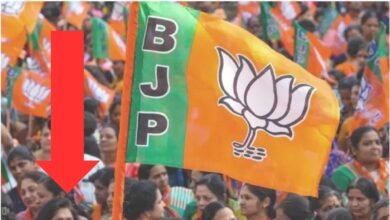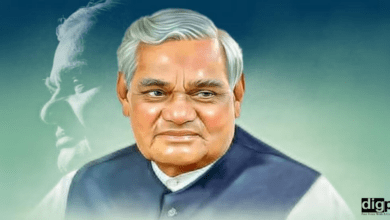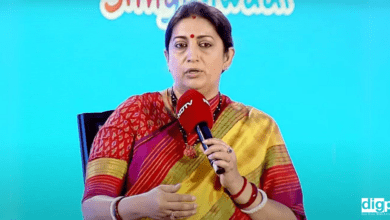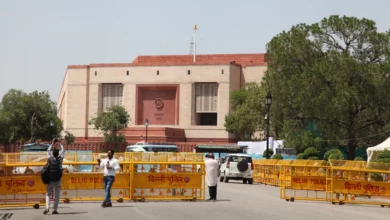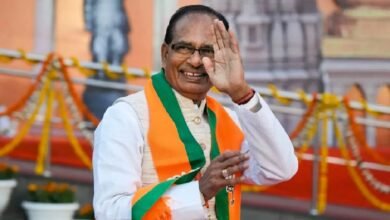Political Parties Spending Heavily on Google Ads, BJP emerges as the leading spender
BJP emerged as the top advertiser, spending around Rs 8.8 crore on over 73,000 ads.
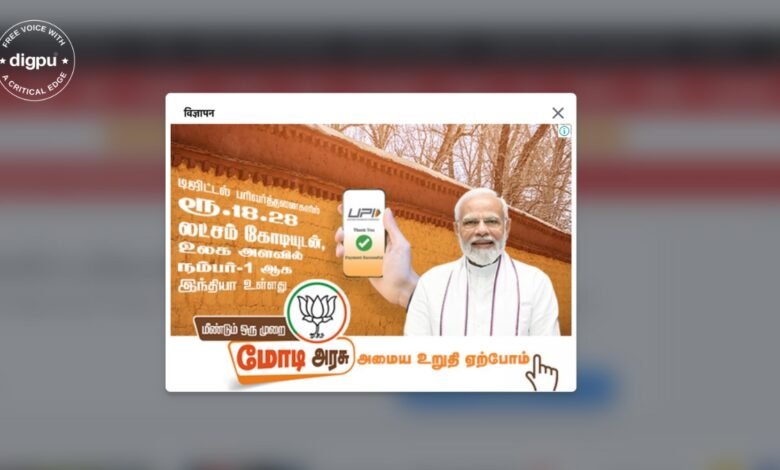
As the Lok Sabha elections draw closer, the digital landscape is witnessing a surge in political advertising, particularly on platforms like Google. According to data sourced from the Google Ads Transparency Centre, political parties and their affiliates have collectively spent approximately Rs 117 crore on Google ads since January 1st alone. This marks a significant increase compared to the corresponding period before the previous general elections, where verified advertisers spent only Rs 10 crore on political ads on Google.
Major Players in Political Advertising
The ruling Bharatiya Janata Party (BJP) emerges as the leading spender, accounting for one-third of the total expenditure on Google ads, with an investment of Rs 39 crore. Following closely is the Central Bureau of Communication (CBC), the government’s advertising agency, which has allocated Rs 32.3 crore towards Google ads during the same period.
Preferred Format and Targeting
Video ads have been the preferred format for political advertising on Google, constituting over 82% of the total ads run during the period. This format allows parties to convey their messages effectively to a wide audience. Moreover, digital advertisements offer targeted reach opportunities at relatively lower costs, as noted by media planners and advertising executives.
Expanding Strategies: Beyond Ads
Political parties are not limiting their digital outreach to traditional ads alone. They are also engaging social media influencers for digital campaigning, expanding their strategies to connect with voters across various platforms.
Google’s Role in Ensuring Transparency
In a bid to prevent the spread of misinformation during electioneering, Google partnered with the Election Commission of India (ECI) to provide information related to political advertisements on its search and YouTube platforms. It requires advertisers running election ads to undergo identity verification and provide pre-certification issued by the ECI. Additionally, all election ads must include in-ad disclosures indicating the entity that funded the ad.
Geographical Trends
Tamil Nadu emerges as the top region for political ads on Google, with a total expenditure of Rs 15 crore during the past three months. This is followed by Uttar Pradesh, Andhra Pradesh, and Odisha. However, spending trends varied each month, reflecting dynamic campaign strategies tailored to different regions.
Significant Increase in Digital Ad Spending
Data from Google’s political ads transparency initiative reveals a substantial increase in digital ad spending compared to previous election cycles. From March 1st to April 9th, political advertisements on digital platforms amounted to Rs 52 crore, nearly six times the spending recorded during the same period in 2019.
Party-wise Expenditure and Targeting
During the mentioned period, BJP emerged as the top advertiser, spending around Rs 8.8 crore on over 73,000 ads. The party’s digital ad spending was concentrated in regions like Uttar Pradesh, Odisha, and Andhra Pradesh. Similarly, other parties such as Dravida Munnetra Kazhagam (DMK) and the Congress have also invested significantly in digital advertising, targeting specific regions to maximize their impact.
Conclusion: The Nexus of Political Spending and Public Funds
As the Lok Sabha elections loom closer, the surge in digital ad spending by political parties, particularly those in power, raises significant concerns about the use of public funds. While platforms like Google facilitate political advertising, their primary concern appears to be revenue rather than the integrity of the information being disseminated. This rampant spending underscores a troubling trend of political parties leveraging public resources for their electoral agendas, potentially indicating widespread corruption within the Indian political landscape.
The substantial disparity in ad spending between parties highlights the disproportionate access to resources and the influence wielded by those in power. It raises questions about fairness and equity in the electoral process, as well as the accountability of parties in utilizing public funds for partisan gain.
As the digital frontier becomes increasingly integral to political campaigning, it is imperative for regulatory authorities to scrutinize the sources and usage of funds by political entities. Without stringent oversight and accountability measures, the integrity of the electoral process and the trust of the electorate are at risk of being undermined by unchecked spending and potential corruption.
Addressing these challenges requires concerted efforts from both regulatory bodies and the public to demand transparency, accountability, and ethical conduct from political parties. Only through collective action can the nexus between political spending and public funds be confronted and rectified, ensuring a fair and democratic electoral process for all citizens.

